PHOTOS: Wynton Marsalis, Honoring Duke Ellington
The artistic director of Jazz at Lincoln Center celebrates the jazz legend who won affection at home and abroad
![]()
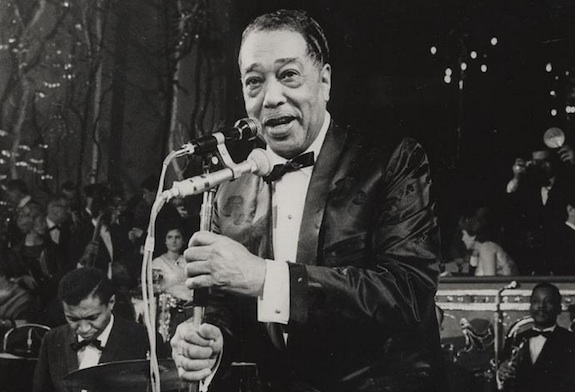
Duke Ellington had international appeal. Here he performs in West Germany. All photos courtesy of the Duke Ellington Collection, Archives Center at the American History Museum
Jazz trumpeter Wynton Marsalis, the spiritual architect and artistic director of Jazz at Lincoln Center, celebrates jazz legacy in a big way. In celebration of the organization’s 25th anniversary, Marsalis has made the legendary composer Duke Ellington a major focus of the orchestra’s nation-wide anniversary tour, with the band performing familiar and lesser known compositions of the man, who as pianist, band leader and musical impresario is often acknowledged as ”beyond category.”
Call it the Crescent City honors the District of Columbia, in recognition of Ellington’s hometown and Marsalis’ New Orleans roots. At a recent concert that filled the Kennedy Center Concert Hall, Marsalis told the audience he feels he hasn’t paid “proper homage to the great Duke Ellington” in recent trips to DC. So he’s correcting the oversight by devoting half of this concert to Ellington’s legacy and music. Jazz at Lincoln Center organizers say the orchestra has and will continue to give Ellington similar prominence throughout the tour.
The evening was an Ellington feast. Compositions like The Mooche and the iconic Mood Indigo which the Duke “played every night for 40-something years,” Marsalis reminded the crowd, were captivating. Braggin in Brass, a tune that took the trombone section through physical and musical gymnastics, was performed rarely and recorded only once, said Marsalis. “I think it was because the trombone section told him we don’t want to play this anymore.”
Edward Kennedy “Duke” Ellington, born April 29, 1899 in Washington, D.C., was a global giant in jazz for more than 50 years. As a cultural ambassador, Ellington garnered global recognition for jazz as an original American art form and was admired by fans and heads of state, worldwide, for his artistry. Over the years, Washington, D.C. has celebrated its native son with numerous honors including a community-building contemporary art mural, the development of the Duke Ellington School of the Arts, a statue of Ellington at the piano in front of the legendary Howard Theater and the dedication of a park in his name in the Foggy Bottom neighborhood.
But perhaps two of the city’s best tributes to Ellington was the installation of the Duke Ellington Collection—an archival treasure trove of photographs, records and other materials, including 100,000 sheets of unpublished Ellington music at the Smithsonian National Museum of American History’s Archives Center, and the establishment, through federal appropriation, of the Smithsonian Jazz Masterworks Orchestra as ”the nation’s jazz orchestra” to preserve and disseminate Ellington’s jazz legacy and that of other jazz legends, to the nation and the world via tours, recordings, education, and concerts.
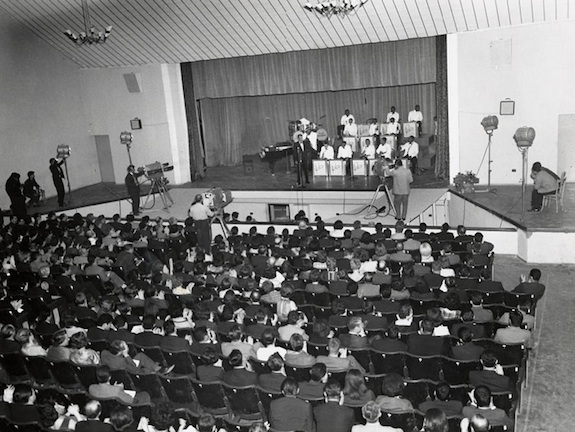
On a State Department tour in 1963, Ellington performs in Iraq.
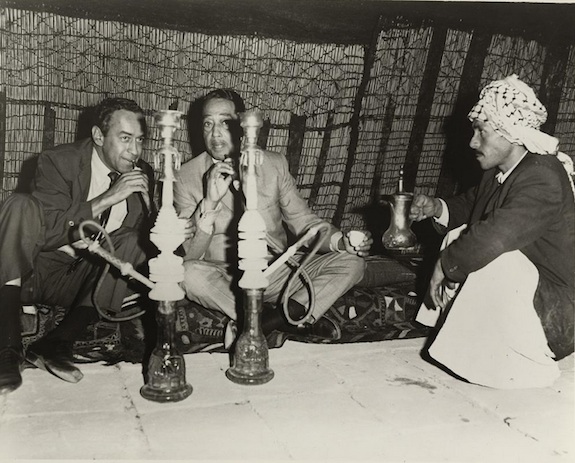
While in Iraq, Ellington partakes in the local scene with hookah and tea, along with Paul Gonsalves.
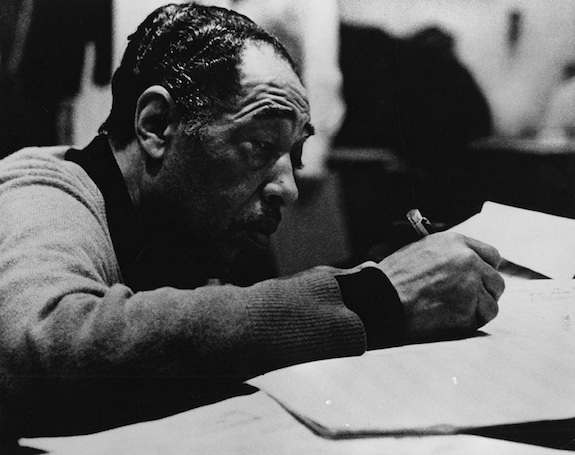
Hard at work, Ellington composing at the piano in Pakistan.
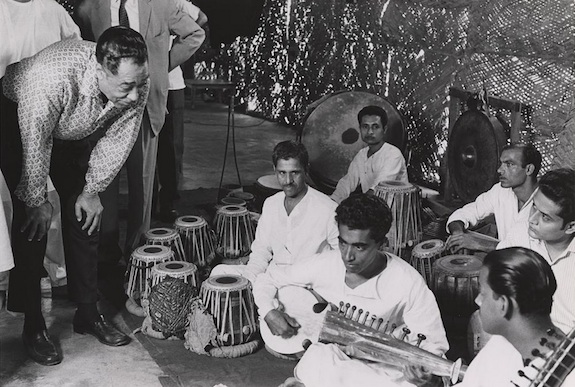
Ellington with a group of Indian musicians.
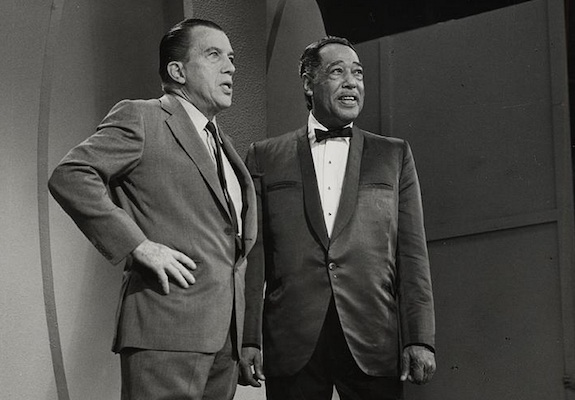
Ellington on the Ed Sullivan Show.
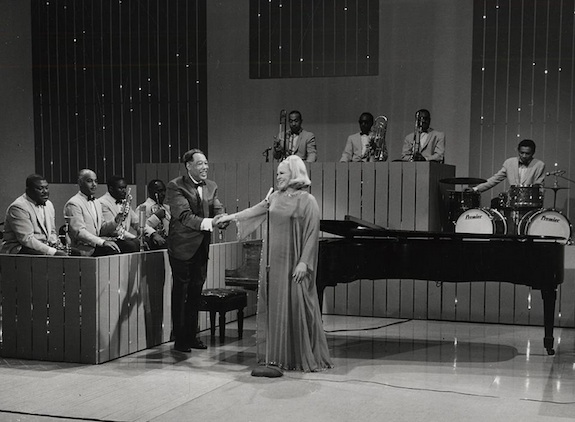
Sharing the stage with Peggy Lee, Ellington performs on the Ed Sullivan Show.
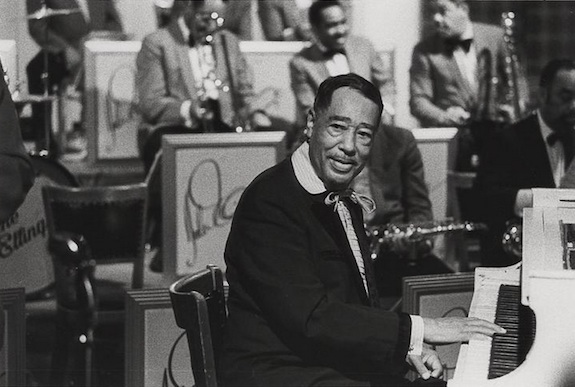
Ellington at the piano for a performance at the Claremont Hotel in Berkeley, California in 1970.
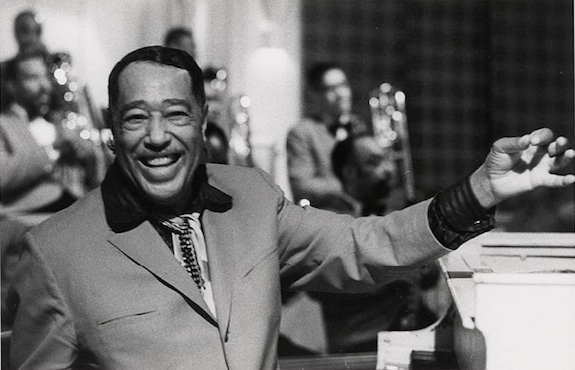
Conducting at the Claremont Hotel, Ellington flashes a big smile.
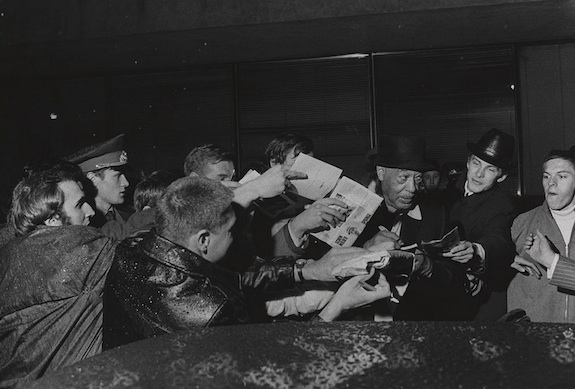
Ellington signs autographs in the rain in the USSR in 1971, his patience appearing to wear thin.
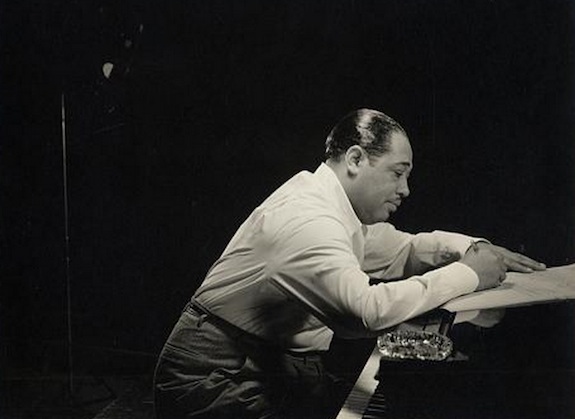
Striking a familiar pose, Ellington composing at the piano.
/https://tf-cmsv2-smithsonianmag-media.s3.amazonaws.com/accounts/headshot/Joann_Stevens.jpeg)
/https://tf-cmsv2-smithsonianmag-media.s3.amazonaws.com/accounts/headshot/Joann_Stevens.jpeg)